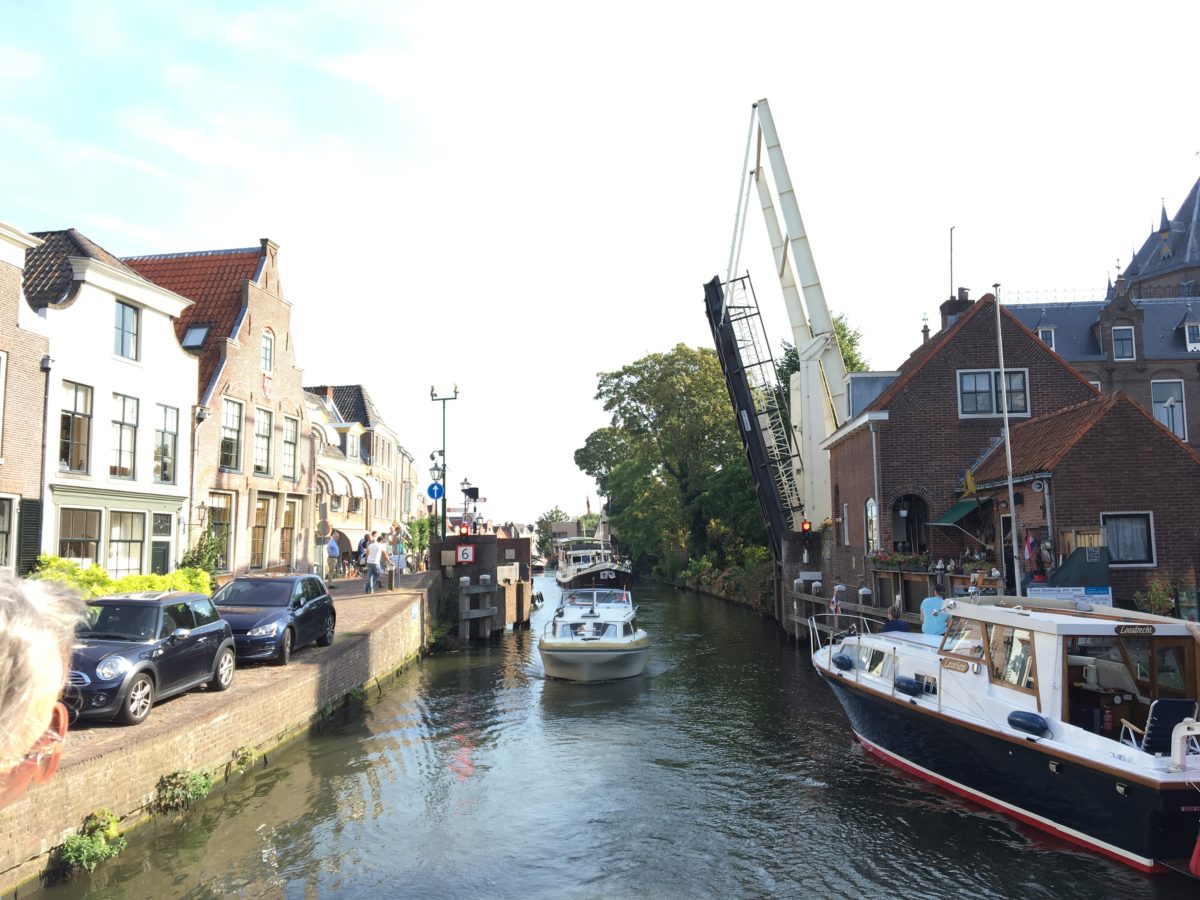
If you’re planning to visit the Netherlands, you can learn and practice 11+ essential Dutch words and phrases here. We’ve posted the first 11.
Listen.
Record yourself.
Play back and compare.
(See more “Learn and Practice Tips” below!)
(And read below about our Dutch Canal boating trip!)
The First 11 Dutch Phrases
Learn and Practice Tips
- Click the black arrow to hear the Dutch speaker.
- Click the red dot once to record yourself, click the black square to stop recording.
- When you click the black arrow again, you’ll hear the speaker and then yourself.
- Do it several times until you sound like the Dutch speaker.
- Then “Choose a Study Mode” and test yourself with one of the Quizlet games! (You may need to adjust your Options with the top right icon
 .)
.)
Good Things to Know about Dutch
Dutch is a West Germanic language (like English, German, Frisian, and Luxembourgish).
It’s the official language of the Netherlands and an official language of Belgium, where it is known as Flemish.
Dutch also has official status in the Republic of Suriname (situated north of Brazil), and on the Caribbean islands of Aruba, Curaçao, Sint Maarten, Bonaire, Sint Eustatius, and Saba.
And, did you know that New York was called New Amsterdam, from 1624 until 1664?
It is often said that Dutch is a language “between English and German”. Dutch and English do share a large number of cognates.
They also have similar sound systems. (One huge difference, though, is the ubiquitous Dutch “g”. See below for more.)
The Dutch are masters at learning other languages and many feel comfortable speaking English. But don’t let that deter you from learning Dutch essentials. It’s a good way to push your own language boundaries and it may also be a way to start a conversation with locals – even if you then switch to English or another language.
Dutch Pronunciation Tips
In general, Dutch pronunciation is not hard for English speakers.
The best way to practice is to imitate the pronunciation of the speaker and not worry too much about how individual letters sound.
However, the sound of Dutch “g” (which shows up in about half of the phrases below) does require some special attention.
Dutch “g” (especially as spoken in the northern part of the Netherlands) is pronounced with a slightly raspy sound, in the back of your throat. Think of Scottish word “Loch”, and try it.
The Dutch combination “gr” (as in “graag”, and “graag gedaan”) is especially tricky. Forget about the sound of the English word “great” – and combine the raspy Dutch “g” with a quick trilled “r.”
Still looking at the list below: Dutch “u” sounds like the French “u”. You say “ee”as in “bee”, but round your lips.
The Dutch “u” sound is important, because the word “u” is the polite word for “you”.
Note also that Dutch “oe” has an “oo” sound, as in the English “boot”.
Walking in the country side…
While there’ll be many opportunities to use basic greetings in Amsterdam and other Dutch towns, knowing them when you’re outside of a city is even more important.
Being a visitor in the Netherlands will make you much more welcome, when you make the effort to greet people in Dutch.
Yes, the Dutch are one of the most English-speaking people in Europe. But surprising locals you meet with just a few Dutch words and phrases will often get you a smile.
A Little Personal History
I went to school in the Netherlands for 2 years when I was 9 and 10 years old. It’s a language I love, and I always enjoy speaking it during my Dutch family’s yearly reunions.
Peter has been learning Dutch as well and while he can’t yet fully participate in Dutch table talk, he already understands a lot. For a native German speaker like him, many words are familiar, but using them in fast conversations is still challenging.
We’ve combined our reunion visits several times with chartering a boat on Dutch rivers and canals. If this interests you, read about it in our post, European Travels 3: Dutch Language and Canal Boating. As there are few locks in the Netherlands – but many bridges – canal boating in the Netherlands is quite relaxing. It’s also a great way to slowly go through the countryside, passing by wind mills and green pastures, and stopping in small towns.
The next 12 Phrases
Once you’ve mastered some of the basic words, polite phrases and greetings, it’s time to learn asking some “where…?” questions.
Even with GPS-enabled smart phones, you’ll sometimes want to know where the bathroom is or the next ATM, information those phones still don’t have!
The next 12 Dutch phrases – with typical “Waar is…?” questions – you’ll find in Dutch 2 For Travel.